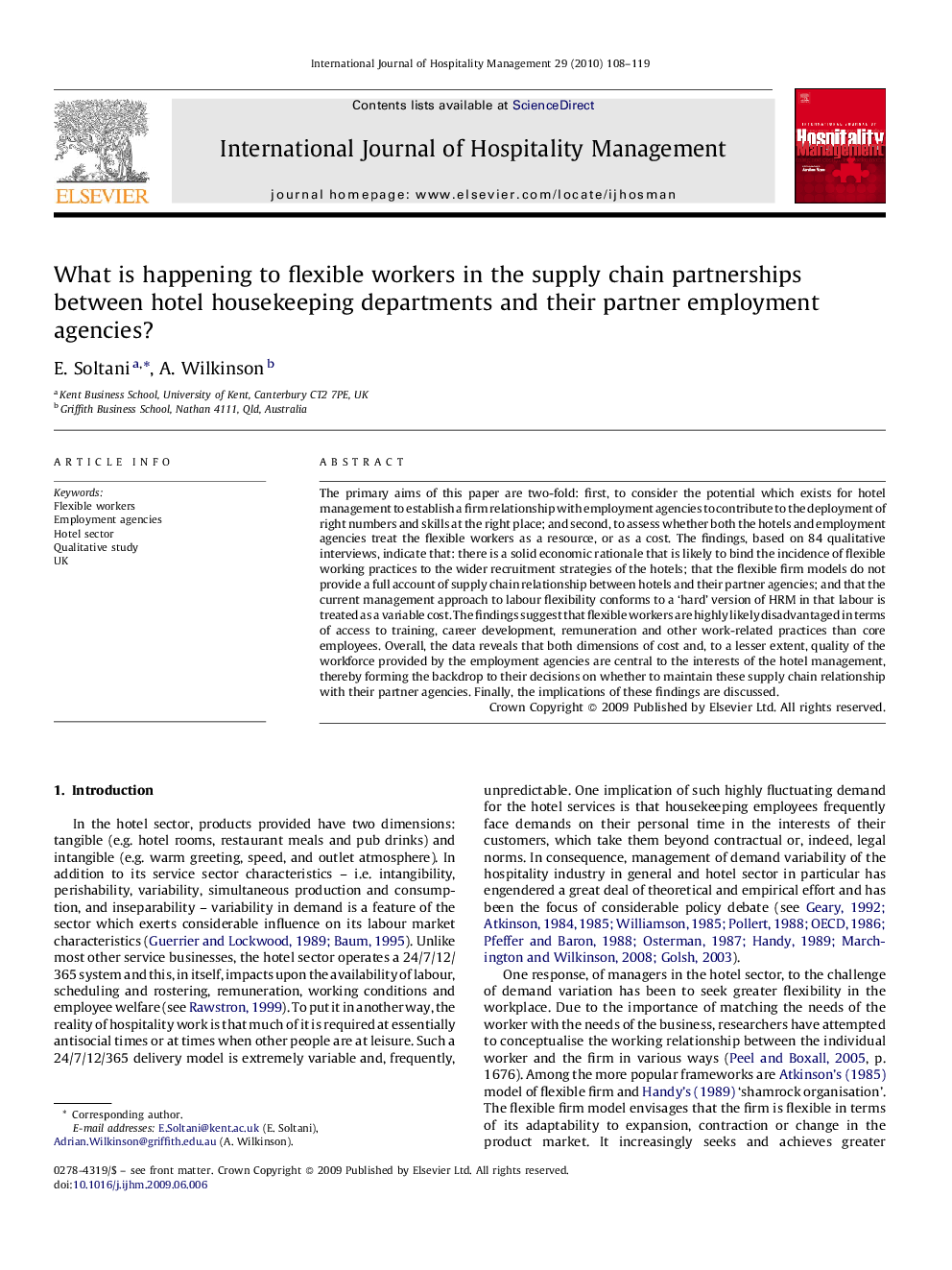| Article ID | Journal | Published Year | Pages | File Type |
|---|---|---|---|---|
| 1010313 | International Journal of Hospitality Management | 2010 | 12 Pages |
The primary aims of this paper are two-fold: first, to consider the potential which exists for hotel management to establish a firm relationship with employment agencies to contribute to the deployment of right numbers and skills at the right place; and second, to assess whether both the hotels and employment agencies treat the flexible workers as a resource, or as a cost. The findings, based on 84 qualitative interviews, indicate that: there is a solid economic rationale that is likely to bind the incidence of flexible working practices to the wider recruitment strategies of the hotels; that the flexible firm models do not provide a full account of supply chain relationship between hotels and their partner agencies; and that the current management approach to labour flexibility conforms to a ‘hard’ version of HRM in that labour is treated as a variable cost. The findings suggest that flexible workers are highly likely disadvantaged in terms of access to training, career development, remuneration and other work-related practices than core employees. Overall, the data reveals that both dimensions of cost and, to a lesser extent, quality of the workforce provided by the employment agencies are central to the interests of the hotel management, thereby forming the backdrop to their decisions on whether to maintain these supply chain relationship with their partner agencies. Finally, the implications of these findings are discussed.
